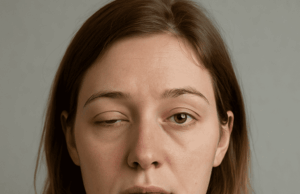What is breast implant illness?
Otherwise known as BII, breast implant illness is a collection of symptoms that can occur following breast augmentation with implants. Whilst the exact cause of BII isn’t known, it is thought to be related to autoimmune or inflammatory responses in the body.
What is BII?
Today, breast augmentations remain one of the most popular cosmetic procedures. Like any medical procedure, it does carry risks of complications, however, that risk are low.
Breast implant illness refers to a wide range of symptoms that can arise following breast implant surgery. Currently, there is no widely accepted definition of BII and the symptoms experienced by BII patients can overlap with symptoms caused by other immune-related medical conditions.
Sometimes symptoms will appear in the days and weeks following surgery but in some cases however, symptoms may not manifest for several years.
Other names for breast implant illness include:
- Silicone implant illness
- Breast implant disease
- Autoimmune/inflammatory syndrome induced by adjuvants (ASIA)
What are the Symptoms of BII?
Everybody is different, and the symptoms of breast implant illness can vary from person to person.
Some people report symptoms similar to other health complications, but others report a wider range of symptoms impacting the musculoskeletal system and cognitive functioning.
Common musculoskeletal symptoms include:
- Muscle pain
- Muscle weakness
- Joint pain
Common cognitive symptoms include:
- Anxiety
- Irritability
- Memory loss
- Depression
- Trouble concentrating
- Brain fog
- Fatigue
Other symptoms of BII are systemic and include.
- Chronic pain
- Hair loss
- Dry eyes
- Skin problems including rashes.
How is breast implant illness diagnosed and treated?
Currently, there aren’t any specific tests to diagnose breast implant illness. However, regular breast screenings will help to identify any potential complications with your implants or overall breast health.
In some cases, where symptoms overlap with other illnesses, such as Lyme disease or arthritis, our experts may recommend you are tested for these to rule them out before addressing the implant.
In some cases, removal of the breast implant may be the best way forward but this does not always result in a complete resolution of symptoms. The operation to remove the implant also removes the associated capsule tissue surrounding the implant.
How soon after treatment will symptoms disappear?
It is very difficult to predict what impact removal of the implant will have on symptoms of BII. In some cases, there may be an improvement but in other cases it may not make any difference. Therefore, careful discussion with a plastic surgeon who has an interest in implant-related problems can help guide you the best course of treatment for you.
If you are concerned about breast implant illness or would like to book a breast health screening with Implant Health.













